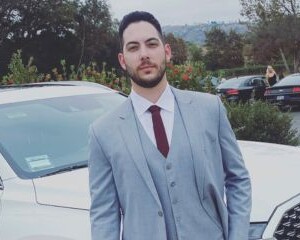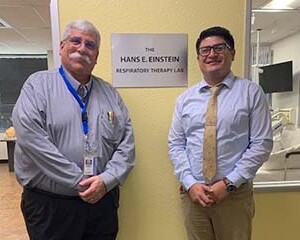Grad Q&A with Respiratory Therapy Graduate Fabian Lora
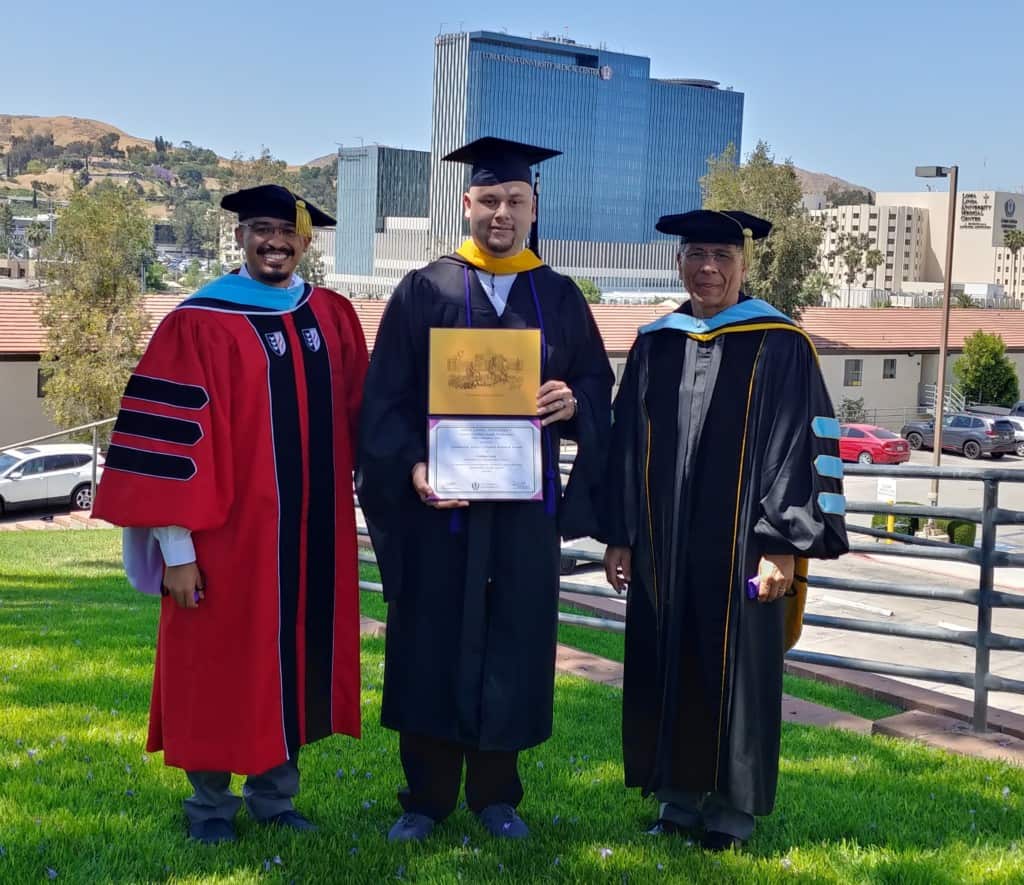 Sometimes you just know what you know, and at a very early age Fabian Lora knew his life’s work would be in the medical field. But there were so many specialties, levels and education choices. How could he determine which would provide the best path for his vision?
Sometimes you just know what you know, and at a very early age Fabian Lora knew his life’s work would be in the medical field. But there were so many specialties, levels and education choices. How could he determine which would provide the best path for his vision?
How did you know the medical field was where you belonged?
I have a picture I drew of myself as a doctor when I was about 4 or 5 years old. I was always the go-to guy if someone fell off their bike or scraped their knee. My immediate response was always, ‘Let’s clean it up and get it done.’
When did that image of yourself get serious?
SJVC came to my high school when I was a senior and told us about all sorts of career training programs. After I graduated, I went to the campus and was originally interested in the Pharmacy Technology program. I passed all the entrance tests, but the advisor asked me if I had considered Respiratory Therapy. I went home and researched it and went back the next day to talk with the RT Program Director at the time, Ricardo Guzman.
How did that meeting go?
He lit a spark. Within an hour he made a few phone calls, and we went to four hospitals where he showed me what they (RTs) do day-to-day. He knew I was interested in emergency medicine, and he saved that visit for the end when we went to the emergency room and intensive care unit. He must have known how to read people because it was like he was the hammer, and I was the nail. I applied for the RT program that day. I was 17-years old.
You were still a minor and living with your parents. How did that work?
The RT program started August 30th and my 18th birthday was August 28th – I barely made the cut-off. My parents (mom, Dina and stepdad, Angel) were very supportive and told me, ‘Whatever you decide we will back you up 110%’. It all happened pretty quick.
What did you struggle with the most and where did you find help?
I needed a little assistance in Chemistry, so I did an after-school tutoring program. If there’s any support anywhere, I’ll take it if I need it. And, throughout the program we classmates helped each other. We would meet after school or on weekends to study. There was a single mother there who had 3 children. She graduated and is a very successful Respiratory Therapist.
The faculty would open up the labs early to give us a chance to practice with the machines. I made a lot of lifelong connections with faculty and classmates.
I was unemployed and living with my parents and not having enough money for gas to get to places was sometimes a struggle. I definitely went to the campus snack bar and pantry a lot for Top Ramen and chocolate bars (at reduced cost for students).
How did you learn to make those kinds of sacrifices?
Honestly, I had a really good childhood, but my mom and I didn’t have much. We lived in a very bad part of town, so from the time I was about six years old, we would wake up at 3:00 or 4:00 in the morning just so she could take me to a better school. She never finished high school, but she never made me feel pressured. Her commitment definitely helped me get into a college later. She would always tell me, ‘You have this (higher education) in you’.
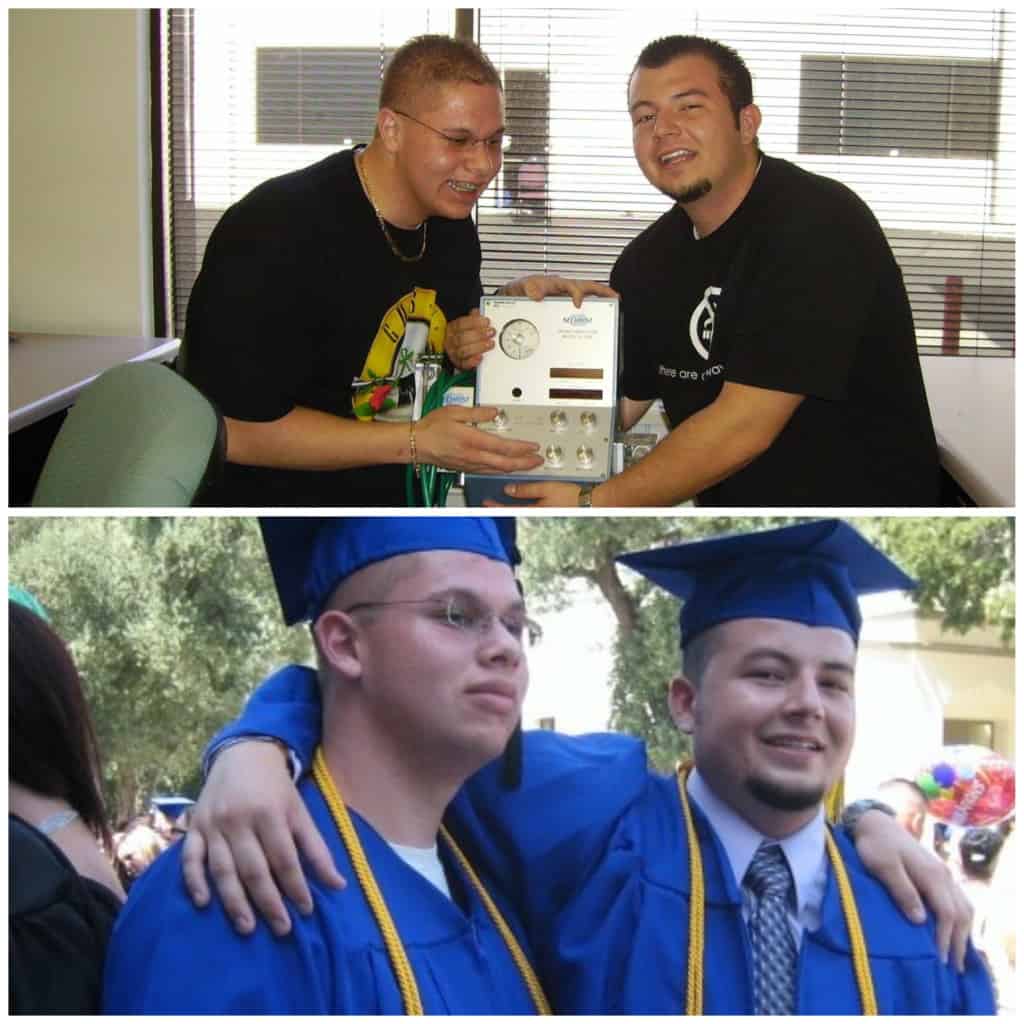 When did you know that Respiratory Therapy was right for you?
When did you know that Respiratory Therapy was right for you?
That ‘ah-hah moment’ for me was the first time I walked into an emergency room, as a RT student of four months. I was there the whole day and loved everything about it. I saw things that would bother most people. I performed CPR on someone for nine minutes who came in pre-cardiopulmonary arrest – and who was technically dead. As I was doing it, I was getting tired; but it felt right, appropriate. It felt like where I belonged.
What was one of your most exciting moments in the Respiratory Therapy program?
I was in the RT program for 8-months when I had my first week of neo-natal ICU rotation. A routine C-section was scheduled for a 39-week (almost full-term) baby. I’d just had the NRP (neonatal resuscitation provider) training a week before, so the information was still fresh in my head. The doctor (delivering obstetrician) said to me, ‘This delivery is all you, so jump on it’. He stood at the door and watched me do everything, and that felt good. I did everything well and there were no complications. The whole exercise took about ten minutes – and it went by really fast.
What advice would you give to someone considering a career as a Respiratory Therapist?
Respiratory Therapy is intense if you work in an emergency room or critical care environment. This is not something you can read about in a brochure or even talk with someone about and get an accurate picture. Go to a hospital with someone in that field and see it firsthand, definitely!
What would someone see if they followed you in your normal workday as a Respiratory Therapist?
As a Respiratory Therapy Practitioner, I am in charge of all emergency baby deliveries at Loma Linda University Children’s Hospital. If ‘mom’ has a disease or a complicated or extremely premature birth, because of my work with trauma and ER, they will throw me in there. I prepare for everything, and anticipate the worst outcome based on the current set of circumstances.
In cases of extremely premature births – usually 2-5 lbs. or less – I continue post-birth care for at least a week or two, until the infant is stable. I’ve been doing neonatal ICU for 13-years now.
How did you expand your education beyond SJVC’s Respiratory Therapy program?
I earned my bachelor’s degree in Emergency Medical Care from Loma Linda University in 2009 and recently completed my Master of Science in Respiratory Care there. I’m looking at going back to school right now to get my PhD.
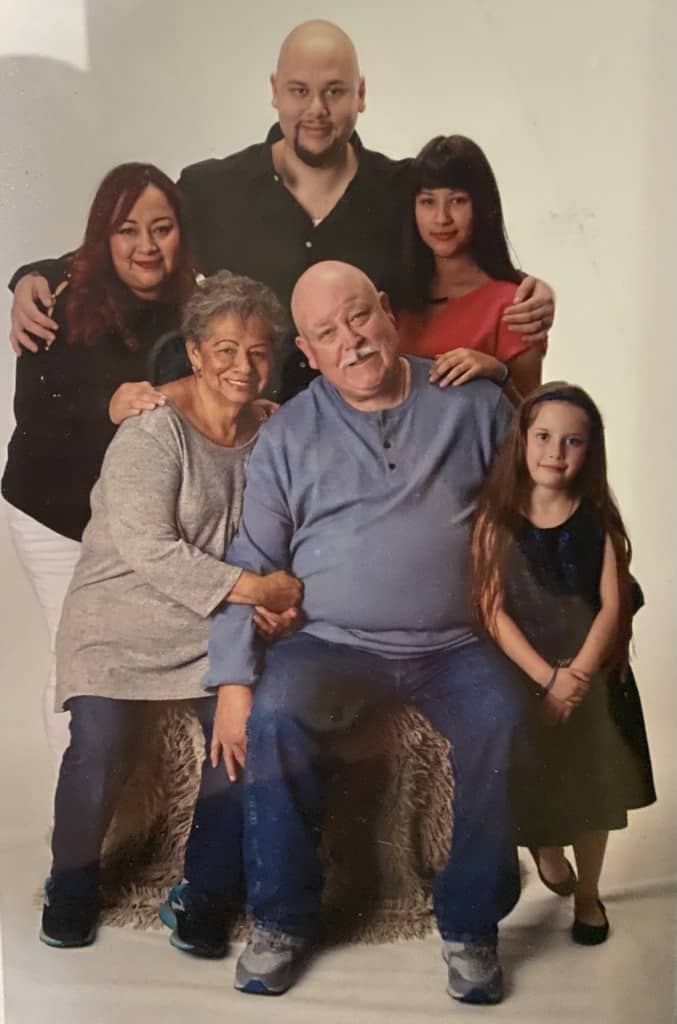 It seems like education has been a big part of your family’s value system?
It seems like education has been a big part of your family’s value system?
My wife, Sindy, is a stay-at-home mom who is interested in becoming a medical interpreter. Our oldest daughter, Rebeca (16) is a straight A student and looking into psychology. Our youngest, Olivia (8) started an accelerated learning program. We don’t mess around here – it’s not good to have idle hands!
Any other big career moves in motion?
I’m really hoping to pay it forward. I have applied for and been accepted for a faculty position with SJVC’s Respiratory Therapy program on the Ontario campus. San Joaquin Valley College gave it (career inspiration and training) to me in the beginning, now I’m trying to give it back to others. I have a lot to share with RT students and a lot to say.
I would say to them, ‘When it gets hard is when it gets real. That’s when you’ve got to keep going and keep your eyes on the prize.’
What excites you most about what you plan to give future Respiratory Therapy students?
I’m going to get to know them individually and as a group. I want to find out what is driving them. I want to know if they have a fire in them that can become an inferno. Then, I’m going to light ‘em up!
Read Our Career Guide On Respiratory Therapy
Respiratory therapists care for individuals affected by respiratory diseases, like asthma and COPD, and other causes of breathing difficulties.
You might also like
More stories about
Request Information
All fields using an asterik (*) are required.

